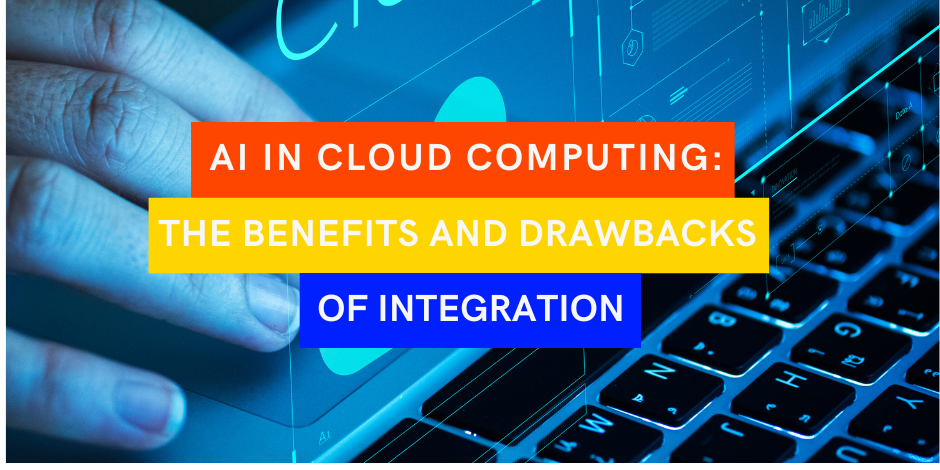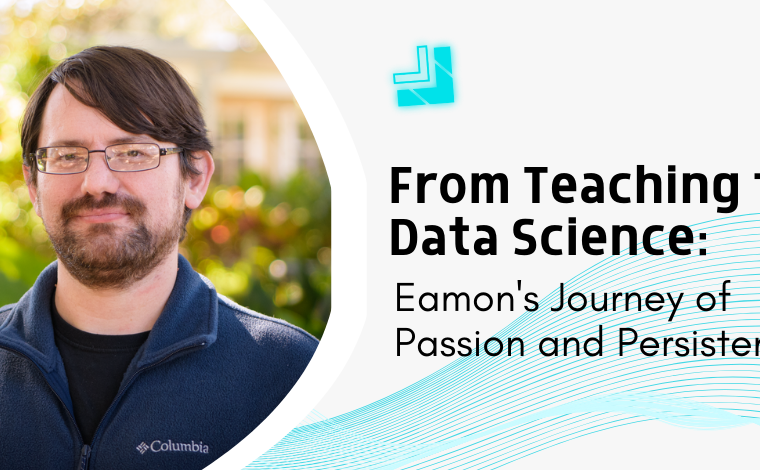AI in Cloud Computing: The Benefits and Drawbacks of Integration

Stay Informed With Our Weekly Newsletter
Receive crucial updates on the ever-evolving landscape of technology and innovation.
AI in cloud computing is the obvious answer when businesses want to scale faster, with better productivity and results, while keeping up with the requirements of the digital economy. Cloud integration has already made managing computers and big data a lot easier. However, when we couple it with AI, all the operational results improve, saving time and resources.
It also adds reliability to the overall work process making it easier for company data to be integrated into the cloud and used by different teams and individual employees. As with every other AI innovation, cloud integration has a separate list of advantages and disadvantages. This should not dissuade you from using it in your systems, but it is best to practise caution and review the impact of AI on your cloud system before you implement the integration.
We will look at the importance of AI in cloud computing, along with the advantages and drawbacks, in this guide!
Is it essential to use AI in cloud computing?

Given the nature of changes, development, speed and scale in every tech-related solution, using AI in cloud computing is essential. The benefits of integrating AI into your cloud system are unmatched, and some core benefits you can expect are automation, saving time and resources, improved productivity and more informed executive decisions. AI and ML models are designed to increase speed and provide ease wherever they are implemented, and cloud systems are no different.
If we look at companies that are even relatively big with a base of online consumers, database management comes out as a clear challenge. A lot of user information and other company data must be managed, documented, updated and protected, which would be time-consuming and costly if only human workers did it. AI models can take over the complete process, even going as far as to help different experts do their jobs better by cataloguing the data and identifying potential threat actors. Several advanced AI tools, like Google Cloud Vertex AI and AWS AI, can help you integrate AI into your business without hassle.
Considering the firm’s size and operations before investing in AI integration is essential to make a more informed choice in picking the best tool. While we will look deeper into the benefits of artificial intelligence integration with the cloud in the later sections, let’s start by looking at the differences between AI and cloud computing and the drawbacks of integrating it into your system.
Difference between artificial intelligence and cloud computing
Cloud computing is designed to store and process large datasets. At the same time, AI models can take data from a different source, understand it with ML models, and use that understanding to make informed decisions that benefit a business. They are among the top software technologies to learn in 2023, and you can learn about the other eight in this guide!
With the hybrid cloud environment, a mix of AI and cloud processes, it is possible to put the collected cloud data to work to solve business problems. This helps to manage the data better and make improved decisions with the available resources. Several key industry players are looking to combine the power of quantum computers with artificial intelligence by incorporating quantum computing in AI.
Modern hybrid cloud solutions allow you to enjoy the benefits of new AI and ML models without switching up your entire setup!
Disadvantages of AI integration

No doubt integrating your cloud system with AI solutions can have many benefits. However, it also comes with its share of drawbacks, including the initial high costs required to train or hire the right staff to manage the advanced system.
AI applications require data, including consumer and vendor information. Data protection and compliance are significant concerns when such sensitive information is processed, so enterprises must create privacy policies and secure all data using AI in cloud computing.
Machine learning models and AI solutions can work through several terabytes of data in short periods. They demand a strong internet connection that does not lag or break down to provide the best results since minor connectivity concerns can lead to incorrect results and loss in data, revenue and profits.
There is also the question of security, which every company must consider when working with significant amounts of data, including financial information. Therefore, it is essential to consider AI ethical principles before implementing a solution to ensure compliance with important security laws and implement robust data protection methods.
How has AI improved modern cloud computing applications?
Artificial intelligence has converted cloud processes from a user-dependent system to a self-learning model powered by machine learning that processes and records previous user interactions and preferences using it in faster and improved services. This is mainly done to provide more personalisation for the end-user, and it also makes data integration easier as every team member can easily access software files and company data with a lot more ease.
Automation

Repeated attempts at complex technical tasks can lead to errors if left at the hand of human workers. So our first benefit regarding intelligent automation with AI solutions comes in here. AI can be taught certain workflow activities defined by specific actions that it can repeat without human intervention. This is an excellent strategy to try on sensitive tasks that involve complex maths or physical strain.
Automation with AI is becoming common in both private and public cloud platforms, making workflows a lot more efficient. They free up the time for tech teams and senior data scientists, who can optimise other workflow areas and monitor tasks depending on their skill set. This phenomenon will increase in popularity over time and spread to more operations, creating a larger workflow requiring minimal supervision. Since AI can self-heal and counter cyber-attacks, cloud computing will simultaneously be more efficient and secure.
Data management
As discussed earlier, cloud management means working with a ton of data and managing it can be challenging. After the system identifies a data set, it must collect and process it. After the data analysis, creating a proper catalogue of the data is essential to make it easier to manage everything and make better decisions. As a business grows, the data streams and the data moving between them increase significantly.
Whether it is for a business in the entertainment, healthcare or financial industry, AI cloud can help get the processing time down significantly, leading to improved operations across the business, from production and customer services to marketing and accounting. Furthermore, there is a reduced chance of inaccuracies with this real-time output when there are set systems to manage its overall life cycle in the cloud storage system.
This means more security and accuracy for financial institutions and a general improvement to cyber security analysis for every cloud computing setup that could be at risk from threat actors who might try to overload servers, breach data privacy, or transmit corrupt data.
Consumer insights

We have already covered AI’s efficiency in detecting, cataloguing, storing and reviewing data. However, it can also use that data to generate insights into user behaviour by considering new and old data patterns.
This data-backed intelligence can help companies to make more informed marketing decisions and can also help to optimise other operations like supply chain management and production. Predictive analytics is a critical component of database management that can be improved upon by AI solutions, resulting in overall productivity benefits for cloud services and systems. In addition, AI solutions like Amazon Personalise can be integrated into digital products to help personalise the UX experience.
Cost benefits
Cloud computing has helped businesses to save costs and improve profits by eliminating the need to rely on physical equipment and data storage systems. This is carried over when we integrate AI infrastructure into cloud environments.
AI can also help optimise the cost savings benefits by analysing any operations causing excessive expenditure within the system that can be fixed. It is also possible to forecast future costs that can help concerned stakeholders to make better decisions to work around any unnecessary expenses.
Security benefits
Lastly, it is essential to consider the security benefits your company can benefit from when you integrate AI into cloud security processes. AI-powered security tools and SIEM solutions are increasingly efficient in reviewing data logs, identifying threat actors and picking up on warning signs of a cyber attack.
These tools can even implement counter strategies to help the security team easily fight off stronger attacks and address any loopholes that leave the cloud infrastructure vulnerable to future attacks. To learn more about how artificial intelligence can improve workplace security, check out this detailed guide on the topic!
Conclusion
AI is undoubtedly the future for every product, business service and even industry that wants to scale rapidly and tend to a more extensive consumer base. Cloud computing has a range of unique benefits, on the other hand. Still, when you combine it with AI, it becomes a superpower, leading to efficient data management, cost benefits and improved executive decisions.
If you are interested in securing a spot in the future of cloud computing and machine learning as a professional, book a career consultation with one of our experts and start your journey today!




